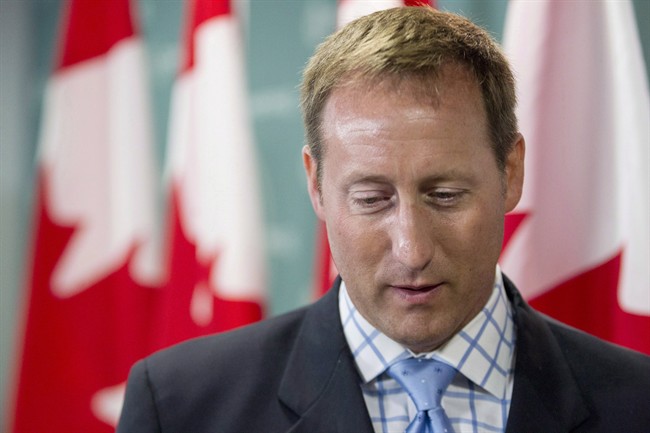SASKATOON – Justice Minister Peter MacKay is talking about cracking down on drunk driving, sexual predators and cyberbullying, while doing more to help victims.

MacKay made the comments in his first speech to the Canadian Bar Association since taking over the justice portfolio.
He told the crowd in Saskatoon that he intends to move forward on a bill of rights for victims after hearing heartwrenching stories from people who were frustrated with the legal process.
“First, I think it’s fair to say that many have recognized that significant improvements have occurred,” MacKay said Monday.
“But second, I’ve heard many victims who still feel the system is failing and they don’t feel that thus far it is meeting their needs. They want the system reformed to include them in a more substantial way.
“We’ve heard that victims want to understand what is happening to them, what is going on around them throughout the process and they need to know that, in fact, their rights will be protected. And that these rights will at least be moving in the same direction as the rights of the offenders in fact enjoy.”
The minister also said more will done to help stop cyberbullying.
In a news conference after the speech, MacKay, who was once a Crown prosecutor in Nova Scotia, said legislation could come this fall.
“The inappropriate transmission of intimate images without consent is a crime and there are certain, I think, legislative gaps now that we’ve identified in the Criminal Code that we hope to plug as soon as this fall if we can get those amendments properly drafted and before Parliament in the coming session,” he said.
A report commissioned after the suicide of a Nova Scotia teen said there should be a law against distributing intimate photos without someone’s consent.
Rehtaeh Parsons hanged herself in April and was taken off life-support three days later. Her family alleges the 17-year-old was sexually assaulted by four boys and a digital photograph of the incident was passed around her school.
Ottawa, the provinces and territories released a report in July that said the law as it stands doesn’t go far enough to protect victims of this type of online exploitation.
MacKay was also asked Monday to weigh in on another report, this one from the Canadian Bar Association.
The group released a report Sunday that described access to justice in Canada as “abysmal.” It said the harshest consequences would be on the poorest people.
Supreme Court of Canada Chief Justice Beverley McLachlin, who also spoke at the conference, described access to justice is a growing problem for many Canadians.
Peoples’ lives can be ruined if they can’t get access to justice, McLachlin said Saturday.
Among other things, the report calls for more federal funding for civil legal aid.
Report author Melina Buckley said the federal government can’t say how much it contributes to civil legal aid because the amount is included in overall funding to provinces and the decisions on how to spend the money is made at the provincial level.
MacKay said the federal government has increased the money it transfers to provinces, but that there are constitutional limitations on what Ottawa can tell the provinces to do with that funding.
The minister said he had not yet read the association’s full report, but had been briefed on it.
“The overall tenor that I’ve received both in the report and from talking to everyone from Madame Justice McLachlin to the president of the Canadian Bar Association, frontline prosecutors, victims, is that this is going to require a concentrated effort over time to address some of these short-comings when it comes to access,” said MacKay.
“And it’s multi-faceted. There’s issues in terms of language, in terms of cultural sensitivity, in terms of the number of judges who are in the system to administer justice, so it isn’t going to be a one-off simple response.
“It’s going to require a period of time, working, collaborating with all levels of government, working with the participants in a way that will bring about meaningful, progressive evolution in our justice system to respond fairly to the subject of access.”



Comments